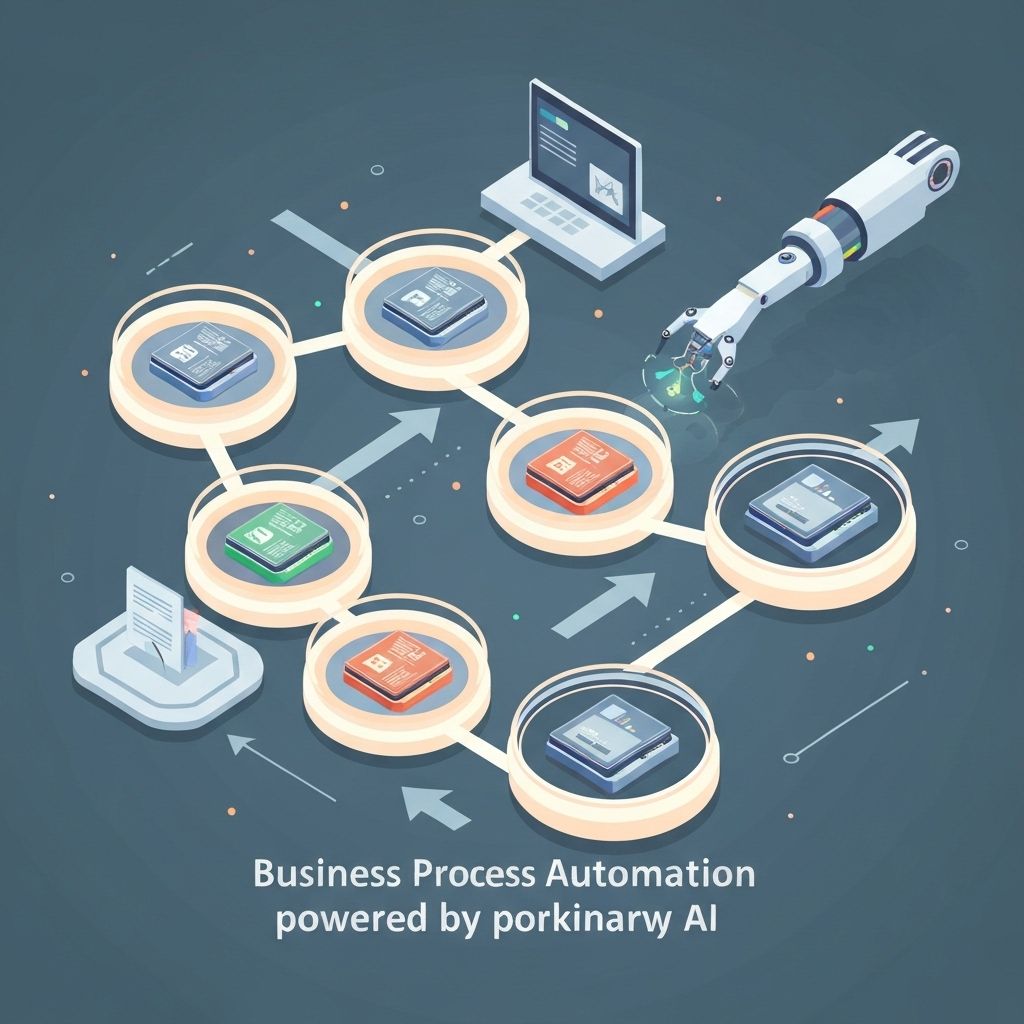Automating Business Processes with AI: Real-World Examples

AI automation is revolutionizing how businesses operate, transforming manual processes into intelligent, self-managing systems that deliver unprecedented efficiency and accuracy.
The Business Case for AI Automation
Modern businesses face increasing pressure to optimize operations while maintaining quality and reducing costs. AI automation provides the solution by:
- Reducing operational costs by up to 60% through process optimization
- Eliminating human error in repetitive tasks
- Scaling operations without proportional increases in workforce
- Improving customer satisfaction through faster response times
Real-World Implementation Examples
1. Customer Service Automation
Challenge: A SaaS company was spending 40+ hours weekly on customer support tickets.
Solution: We implemented an AI-powered chatbot with natural language processing that:
- Handles 80% of common inquiries automatically
- Routes complex issues to appropriate specialists
- Provides 24/7 customer support coverage
Results: 70% reduction in response time and 50% decrease in support costs.
2. Invoice Processing Automation
Challenge: An accounting firm processed 500+ invoices manually each month.
Solution: AI-powered document processing system that:
- Extracts data from invoices automatically
- Validates information against purchase orders
- Routes approvals through automated workflows
Results: 90% reduction in processing time and 95% accuracy improvement.
3. Lead Qualification and Scoring
Challenge: Sales team was spending too much time on unqualified leads.
Solution: Machine learning model that:
- Analyzes lead behavior and demographics
- Scores leads based on conversion probability
- Automatically nurtures leads through personalized email sequences
Results: 40% increase in conversion rates and 60% more efficient sales process.
Implementation Strategy
At Syntax Lab Technology, we follow a proven methodology for AI automation:
Phase 1: Process Analysis
- Identify repetitive, rule-based tasks
- Analyze current workflow inefficiencies
- Calculate potential ROI and impact
Phase 2: AI Solution Design
- Select appropriate AI technologies
- Design integration with existing systems
- Create fallback mechanisms for edge cases
Phase 3: Gradual Implementation
- Start with pilot programs
- Monitor performance and adjust algorithms
- Scale successful automations across the organization
Key Technologies We Use
- Natural Language Processing: For document analysis and customer communication
- Computer Vision: For image and document processing
- Machine Learning: For predictive analytics and decision making
- Robotic Process Automation (RPA): For system integration and workflow automation
Best Practices for Success
- Start Small: Begin with simple, high-impact processes
- Maintain Human Oversight: Always include human review for critical decisions
- Continuous Learning: Regularly update and retrain AI models
- Change Management: Prepare your team for process changes
Ready to transform your business operations with AI automation? Our team specializes in identifying automation opportunities and implementing solutions that deliver measurable results.
Ready to Start Your Project?
Let's discuss how we can help bring your mobile app vision to life with the latest technologies.
Get Started TodayJoin the conversation and share your thoughts
Your email will not be published.